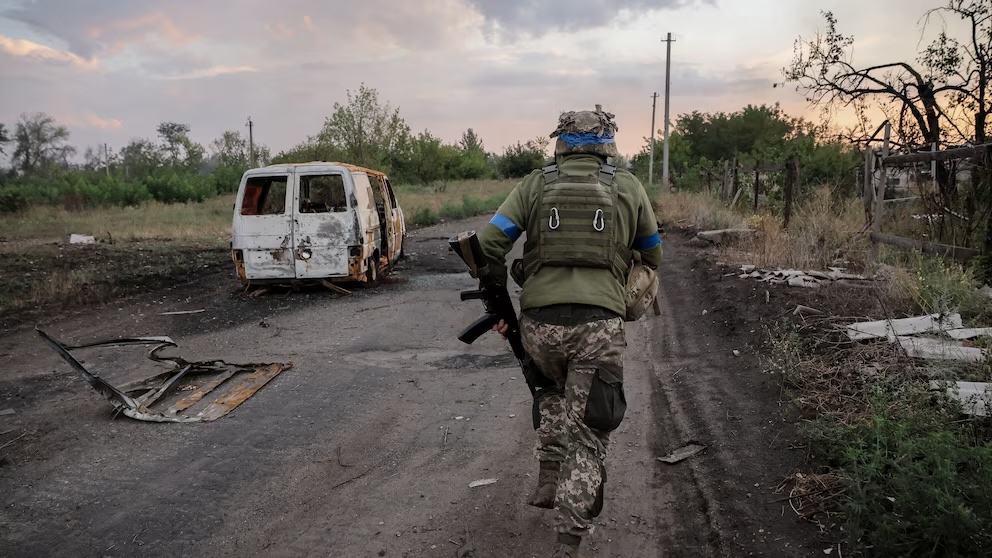

Taras Kuzio
Why Has Ukraine Launched a “Special Military Operation” into Russia?


Social media, print and electronic media are abuzz with written and video reports of Ukrainian forces entering the Russian region of Kursk. This, let us recall, is not the first time such an action has taken place, but past interventions into the Belgorod region was undertaken by pro-Ukrainian Freedom of Russia League, Russian Volunteer Corps, and the Siberian battalion units which have recruited Russian citizens. On this occasion, video reports have shown only the Ukrainian military and Georgian volunteers.
Some Western experts and media quickly criticized Ukraine’s military action at a time when Ukrainian forces were under severe Russian pressure in the Donbas. Western experts and Ukrainian political and military leaders are looking at this military action from two different angles. The former are viewing the military action as misguided in the light of manpower shortages and the tough battles taking place in the Donbas. Meanwhile, the latter are viewing Ukraine’s military action as hitting Russia towards the end of its current offensive; military intelligence [HRU] head Kyrylo Budanov believes Russia has only two more months of capability to launch offensive attacks.
Below, I outline 10 possible reasons for Ukraine’s military intervention into the Kursk region of Russia:
- Information Warfare: Increase the morale of Ukrainians and reduce the morale of the Russian military and civilians.
- Humiliation: Humiliate President Vladimir Putin and thereby stir dissent against him within Russian political, military, and economic elites.
- Upset Russian Passivity: Bring the war home to the millions of Russians who have remained passive and who have continued their lives while ignoring Russia’s genocidal war against Ukraine.
- Cordon Sanitaire: Russia unsuccessfully attempted to create a buffer zone inside the Kharkiv region. Ukraine may successfully create a cordon sanitaire in the Kursk region that would put Russian artillery beyond the range of attacking Ukrainian settlements and block supply roads to Russian forces in the Donbas.
- Sanctions: After the 2019-2024 Ukraine-Russia gas transit agreement expired, Ukraine may wish to capture, control or destroy the Sudzha trans-shipping hub for the transportation of Russian natural gas to Europe through Ukraine. Pro-Russian Hungary, Slovakia, and Austria – who have had nearly three years to find alternative non-Russian energy supplies – may have to change their hitherto negative policies towards Ukraine.
- Nuclear Tit for Tat: Unlikely, but Ukraine may seek to capture the Kursk nuclear power plant lying 70 km north-east of Sudzha to use as a bargaining chip for the Zaporizhzhya nuclear power plant, which Russia has occupied since Spring 2022.
- Russian Opposition: Provide the real Russian opposition represented by the Freedom of Russia League, Russian Volunteer Corps, and the Siberian battalion (as opposed to Russian émigré liberals who have no influence inside Russia) with a foothold to sow dissent against Putin’s regime. In June of last year Yevgeny Prigozhin’s Wagner forces used Belgorod as a stepping stone for their offensive that nearly reached Moscow.
- Red Lines: The operation could be an attempt to show that US fear of Russian ‘red lines,’ which have led to a cautious approach to supplying Ukraine with military equipment and restricting their use inside Russia, is a myth.
- Pincer Movement: With or without another special military operation into the Bilhorod region, the operation into the Kursk region could be a pincer movement to encircle Russian troops by moving behind them on the Russian side of the border with Ukraine.
- Looking to 2025: Ukrainian forces and Georgian volunteers have successfully broken through Russian fortifications in a combined arms operation using electronic warfare to bring down Russian communications and drones. Their military action will collect valuable experience that could be used for Ukraine’s likely offensive in the Spring of next year; then, Ukraine will be able to use F-16 jets that are unavailable for use inside Russian territory.
Taras Kuzio is a professor of political science at the National University Kyiv-Mohyla Academy of Kyiv, Ukraine.
His books Russian Disinformation and Western Scholarship and Fascism and Genocide. Russia’s War Against Ukrainians are recently published by Columbia University Press.

